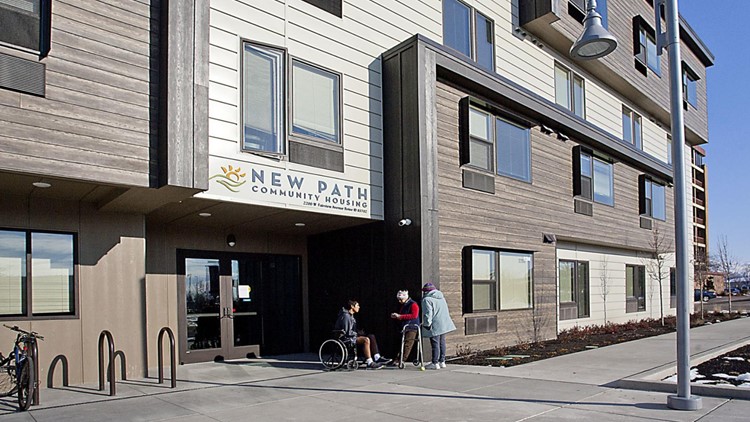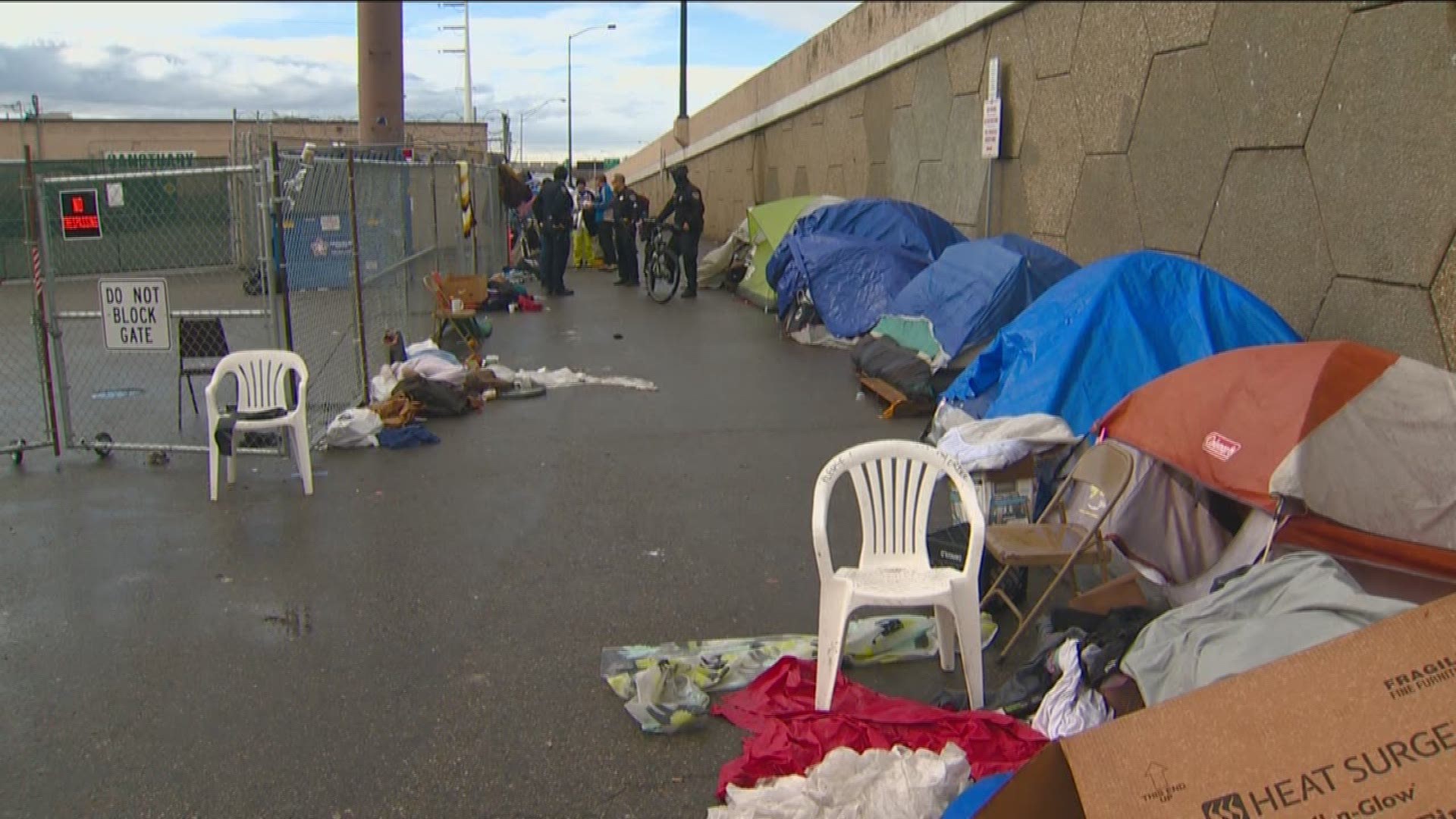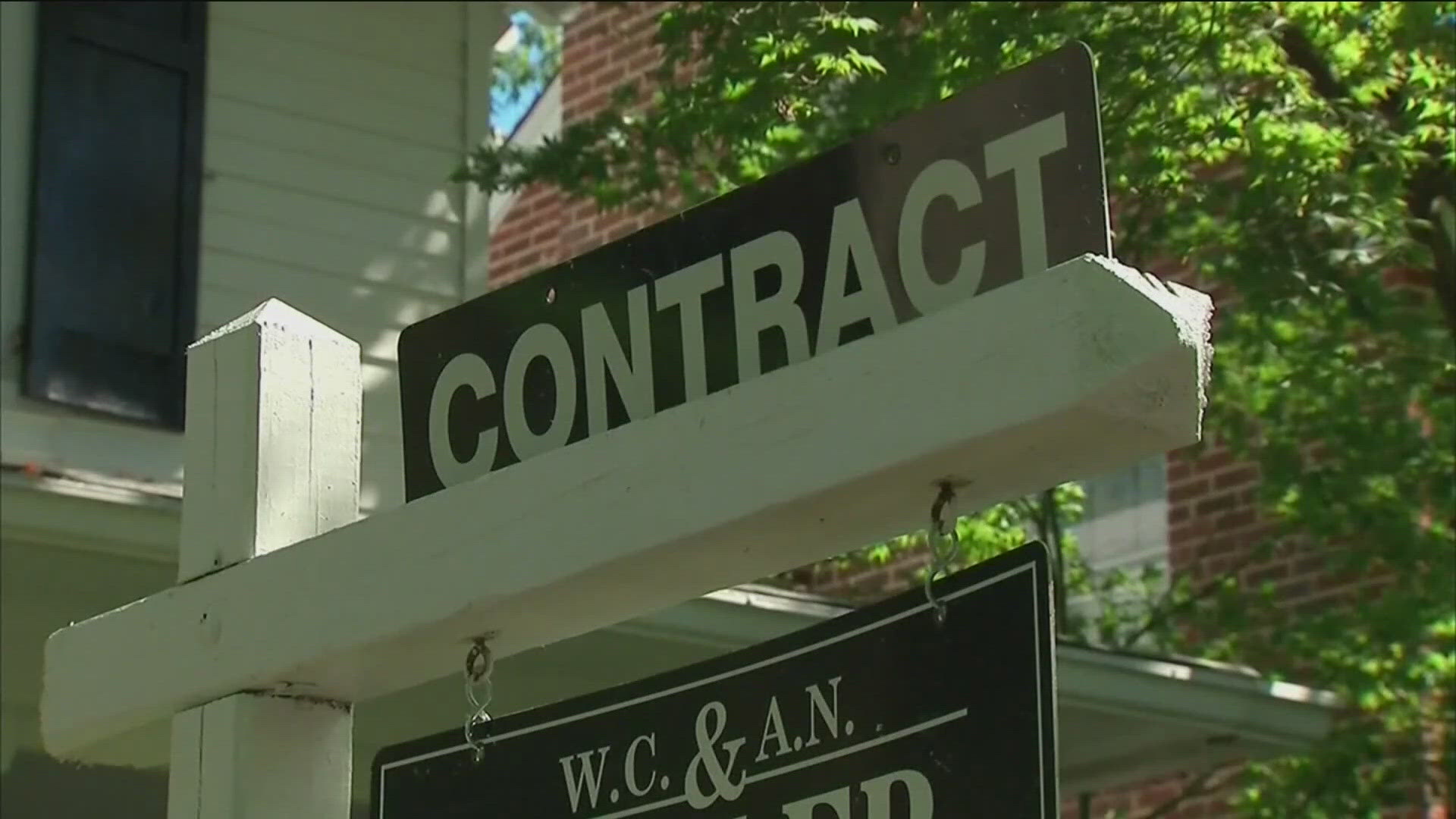BOISE, Idaho — The developer of Boise’s housing project for chronically homeless residents was allowed a rent increase from the Boise City/Ada County Housing Authority for 2020, but not as much as the developer hoped for in some cases, the Idaho Press reports.
Private developer Tomlinson & Associates requested a rent increase at New Path Community Housing on Fairview Avenue after its first year of operation, according to documents obtained by the Idaho Press by a public records request. For 33 studio units, the developer asked for and was granted an increase of $25 per month. But, the developer also asked to increase the rent for four one-bedroom units from $592 per month to $760 per month, and was only granted a boost to $628 monthly instead.
New Path’s rent changes took effect Jan. 1. The increases in rent will be paid for by the housing authority, not the tenants themselves.
New Path Community Housing, which opened at the end of 2018, is a collaboration of numerous local government agencies to provide 39 units of permanent supportive housing for those who have experienced unsheltered homelessness for longer than a year. Residents selected to live there were all issued Section 8 vouchers that go with their units, which means they pay 30% of their income as rent. If they have no income, they pay no rent.
Deanna Watson, executive director of the housing authority, said when her staff received the rent increase request they reviewed all of the regulations from the U.S Department of Housing and Urban Development as well as the project’s financial statements from Tomlinson & Associates to make the decision. A review of these documents obtained by the Idaho Press through a public records shows New Path made an annual profit of $83,360 for Tomlinson.
“Because we’re using a federal resource that is intended for helping people with limited income be able to rent decent, safe and sanitary housing, we have to guard that carefully in that we can only help about 20% of the people in Ada County who need help,” she said.
In three cases, rents also slightly decreased due to regulations related to the low-income housing tax credits used to finance the property. Tomlinson requested the rent on one studio be raised from $538 to $563 a month, but it was reduced to $466 monthly. Two more were reduced from $538 to $530 per month.
According to the housing authority, 72% of tenants at New Path pay some amount of rent. The average rent is $205, with the lowest portion being $98 and the highest $422 per month. The housing authority spends $16,185 per month on rental assistance for residents of the building.
Housing Affordability
Boise is looking toward public-private partnerships like New Path to help fill the need for affordable housing, both for the homeless and also low-income residents. A second permanent supportive housing project, specifically for homeless veterans, is being built on State Street, and the city is in the early stages of developing a request for proposals for a mixed-income housing project with a developer on the Boise Bench.
Wyatt Schroeder, Boise’s director of community partnerships, said for private developers on projects like New Path making a profit is an important part of the process. If New Path is not profitable for the developer, he said, it would endanger the resources for dozens of Boise’s most vulnerable residents.
“It’s really important we have a healthy project for this,” he said. “The most important thing about having a healthy project is making sure the building stays open, and if the building doesn’t stay open, then, unfortunately, the people who need us the most don’t get the homes they need.”
RELATED: Boise Housing First project on track, but working to address needs of high levels of medical care
Schroeder was excited that New Path was able to add to its capital reserve in the first year, which ended with a balance of $128,000 for the first year. He said this is not a profit for the developer, but instead is for maintaining the building so it can be a resource to help the chronically homeless as long as possible.
Though rent increases don’t hit New Path tenants directly, they do pull from the limited funds available for housing assistance. Part of the deal the housing authority made when New Path came online was to take 40 existing Section 8 vouchers set aside for residents to use with landlords in the private market and transition them to a type of housing voucher that is connected to New Path itself.
Watson estimates at any given time the housing authority can only provide assistance for 20% of those who need it, or roughly 2,000 Section 8 voucher holders per year.
Despite the movement of her limited resources to New Path, Watson praised the program as a positive force in the lives of chronically homeless Boiseans.
“I think, overall, these are people’s lives that have been able to stabilize and start looking for the future, and not just on the day to day,” she said.
More from our partner Idaho Press: Wrongful conviction bill inspired by Tapp case gets hearing
Watch more 'Growing Idaho':
See them all in our YouTube playlist:




